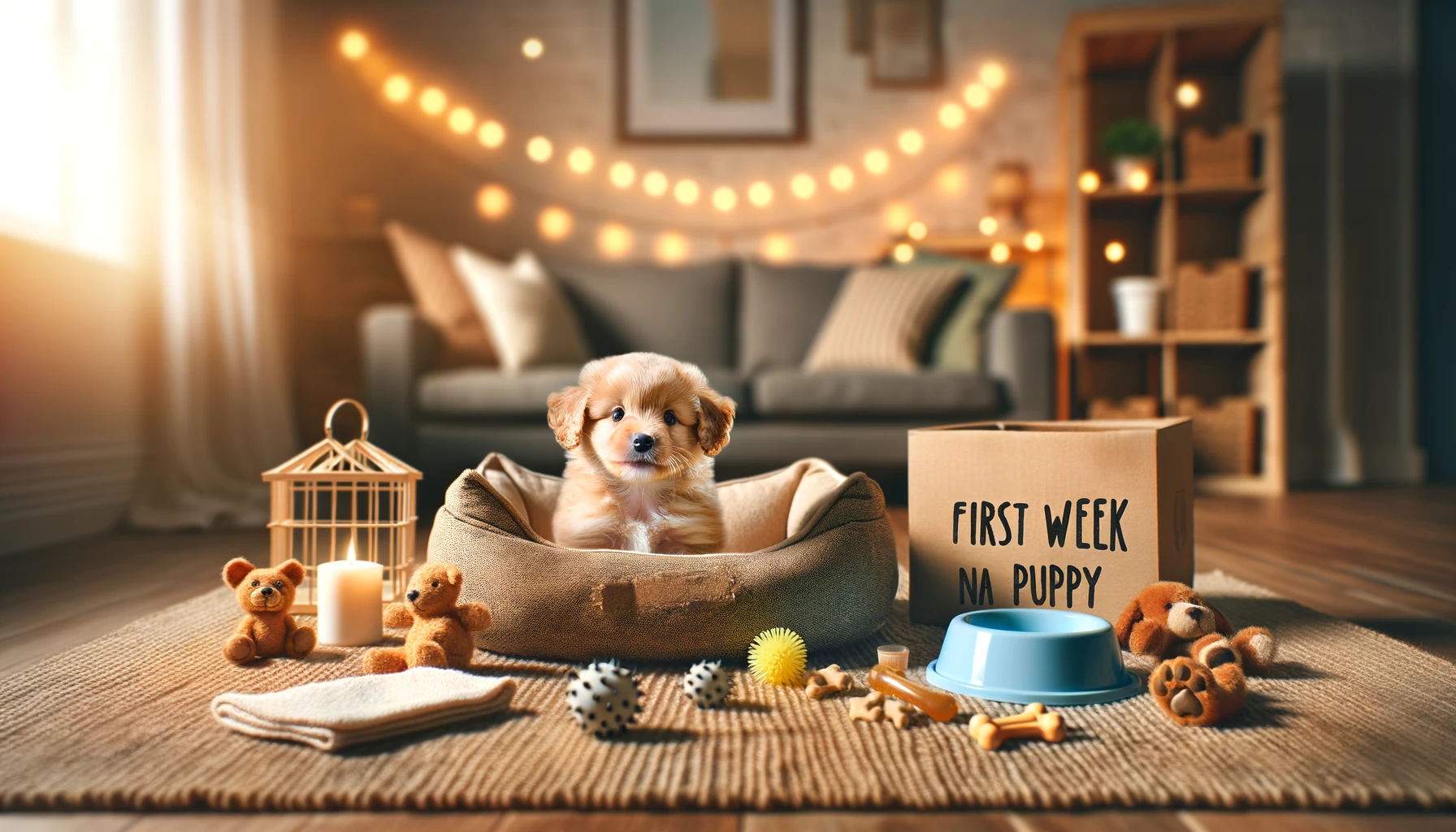You’re not alone if you have a puppy or dog that won’t stop chewing and destroying your belongings. Excessive chewing is a common problem for dog owners and can be frustrating, stressful, and expensive if your pet ends up ruining furniture, shoes, carpet, or other items around the house. The good news is there are ways to curb this behavior and set your dog up for chewing success. With some effort and patience and by providing more appropriate outlets for your dog to chew, you can get the issue under control.
Reasons Dogs Chew
Before getting into solutions, it helps to understand why dogs chew in the first place. Chewing is an instinct for dogs and serves several purposes—first, puppies like to munch during teething as it soothes sore gums. Chewing also keeps their jaws strong and provides mental stimulation. Some dogs enjoy chewing and seek out anything they can sink their teeth into. Others chew when they feel anxious or bored or seek your attention. Chewing can even indicate a nutritional deficiency or other health issue like intestinal parasites that should be addressed with your vet.
Tips to Stop Excessive Chewing
While you can’t entirely prevent a dog from chewing, there are steps you can take to redirect the behavior and avoid destruction. Here are some tips:
- Dog-proof your home. Go through each room and remove or secure any items your dog could potentially chew, hazardous ones like electric cords, plants, or chemicals. Keep shoes, books, remote controls, and other belongings picked up and out of reach. Restrict access to rooms when you’re away.
- Provide plenty of chew toys. Giving appropriate outlets for chewing is critical. Offer an array of toys with different textures: rubber, rope, stuffed animals, balls, etc. Rotate the toys to keep your dog interested. Have toys easily accessible around the house.
- Use bitter spray deterrents. Spraying bitter apple, cherry, or citrus flavors on furniture, baseboards, your belongings, or chewing sites will deter most dogs. Reapply frequently.
- Give praise for good behavior. When you catch your dog chewing a proper toy, reward it with treats, petting, and verbal praise so they know its desired behavior.
- Increase physical and mental exercise. Make sure your dog gets adequate walks, playtime, and training. Bored dogs tend to look for destructive outlets.
- Manage alone time. Confine your dog in a crate or puppy-proofed room when you can’t actively supervise them. Hire a dog walker if needed. Providing stimulation like puzzles, chew toys, and background noise can also help.
- Correct lousy behavior. If you catch your dog in the act of inappropriate chewing, interrupt with a firm “No!” Provide an acceptable chew toy while praising when they redirect chewing urges. Never discipline after the fact.
- Try deterrent sprays and tastes. Some dogs dislike certain smells or tastes. Applying citrus or bitter apple to objects may curb the chewing desire.
- Address stress and anxiety. If excessive chewing corresponds with events like moving, schedule changes, or visitors, focus on helping your dog feel more secure. More exercise, play, and affection can help relieve anxiety. Prescription drugs may also be recommended in extreme separation anxiety cases.
- See your vet. Rule out any underlying medical factors like dental problems, allergies, intestinal blockages, or nutritional deficiencies that could be causing your dog to chew. Your vet can also refer you to dog behaviorists if needed.
With time, consistency, and the provision of acceptable outlets for your dog’s natural chewing instinct, you can successfully curb destructive chewing behaviors. Always make sure your dog has access to chew toys and reward good behavior. If chewing persists, do not hesitate to enlist the guidance of your veterinarian or professional dog trainer.
Curbing Puppy Chewing
Puppies like to chew even more than adult dogs due to teething. Here are some extra puppy-proofing tips:
- Freeze chew toys and treats to soothe sore gums. Great options include wet washcloths, ropes, rubber toys, and specially designed teething products.
- Provide a variety of textures to satisfy your pup’s urge to chew and nibble. Soft, hard, nubby, smooth – provide different surfaces to explore.
- Supervise constantly and redirect chewing to appropriate toys. When redirection doesn’t work, interrupt the behavior with a loud noise or time-out. Praise for good chewing.
- Avoid scolding after the fact. This is ineffective and may increase chewing behaviors.
- Crate train your puppy. Confine them to a crate when you are not available to watch them. This protects your belongings and prevents bad habits from developing.
- Invest in bitter deterrent sprays. Applying these to furniture, shoes, and off-limit household items can help curb your pup’s temptation to chew. Reapply frequently.
- Give plenty of exercise. Take your puppy on walks, play fetch, and consider enrolling in a training or socialization class. A tired puppy is less likely to get into mischief.
- Be patient! The chewing phase will pass as your puppy ages. Keep being consistent with training and redirection until they outgrow this behavior.
Preventing Destructive Chewing in Adult Dogs
While chewing issues are common in young dogs and puppies, adult dogs can also develop destructive chewing habits. To curb chewing in adult dogs:
- Ensure your vet meets their needs with adequate exercise, training, playtime, affection, and medical care. Boredom and stress are common chewing triggers.
- If chewing started suddenly, look for any changes in routine, environment, diet, or health that could be causing anxiety.
- Use crates, leashes, or ropes to restrict access when you are away from home or unable to supervise directly.
- Keep their environment picked up with limited access to potential chewing items.
- Try changing up their toys frequently to renew their interest. New toys are often appealing.
- Consider the motivation – attention-seeking dogs may chew when you are occupied or away. Separation anxiety could be a factor.
- Use remote correction collars or alarms to startle or interrupt if you catch chewing in action from another room.
- Enlist help from force-free professional trainers if you cannot curb the behavior independently. Persistent chewing may require customized training plans.
Be patient but firm in stopping destructive chewing habits. While chewing is normal, you can teach adult dogs what items are acceptable outlets. You can resolve chewing issues at any age with diligence and address any underlying stress causes.
Chewing Prevention Tips
Here are some final tips for stopping your dog from chewing everything in sight:
- Use crates: Crates keep dogs and belongings safe when you cannot supervise directly. Dogs won’t typically eliminate or chew destructively in their crate if appropriately sized and introduced positively.
- Manage alone time: If your dog chews when alone, confine them, arrange for a dog walker, or provide engaging toys and puzzles to keep them occupied. Background noise from the TV or radio can also help with separation stress.
- Give plenty of exercise: Ensure your dog gets at least 30-60 minutes of daily activity to burn mental and physical energy. Tired dogs are less likely to chew destructively.
- Meet their needs: Dogs need play, chew time, training, socialization, and bonding. Ensure these needs are fulfilled so they don’t look to fill them in destructive ways.
- Correct gently: Use positive reinforcement and redirection. Discipline or punishment after the fact will not change the behavior.
- Be patient and consistent: Changing behavior takes time. Stick with training strategies for at least 2-3 weeks before expecting significant improvement. Prevent access to chewing items during this period.
- Ask your vet for help: If chewing continues despite your best efforts, schedule a vet exam to identify any medical factors contributing to the issue. They can also refer you to professionals for more support.
Conclusion
Destructive chewing habits in dogs can certainly be frustrating. This typical behavior can be corrected with time, effort, and patience. Be sure to provide plenty of appropriate outlets for chewing, exercise their body and mind sufficiently, don’t give them access to inappropriate items, and consistently reinforce good behavior. Consult your vet and professional dog trainers if excessive chewing persists beyond your best efforts. Stay positive – you and your dog can overcome this challenge!






